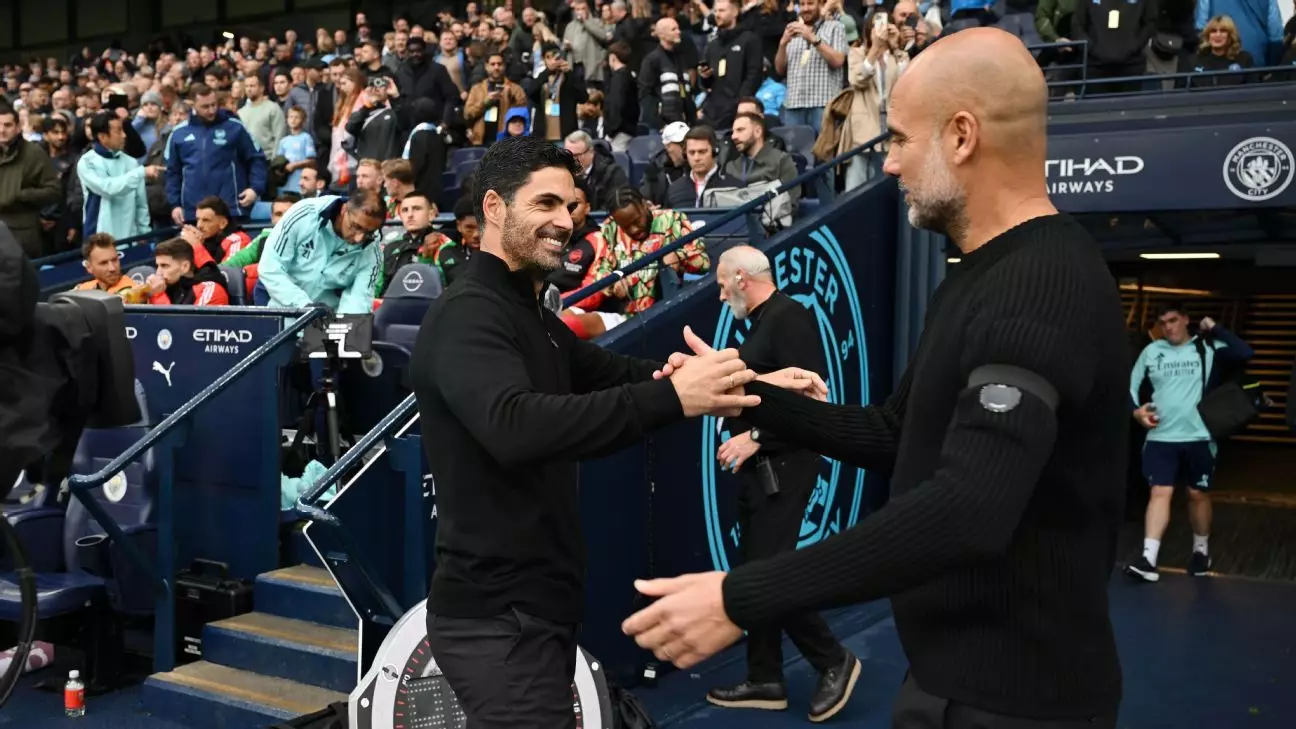In the high-octane world of Premier League football, rivalries often become personal, impacting friendships and professional relationships. However, Mikel Arteta, the manager of Arsenal FC, recently articulated that the bond he shares with Manchester City’s Pep Guardiola remains intact, even as their teams vie for the title. The Arsenal manager emphasized the distinction between professional rivalry and personal affection during a press conference, a statement that sheds light on the often unseen side of competitive sports.
Arteta, who spent time as an assistant coach to Guardiola at Manchester City before taking the helm at Arsenal in 2019, expressed unwavering admiration for his former mentor. He conveyed that the essence of their relationship is not contingent upon the outcomes of their matches. “I love him, I respect him, I admire him and I admire his team,” he stated, underscoring the idea that professional disagreements should not taint personal bonds. This perspective is refreshing in an era where sports rivalries can often lead to bitter disputes or disdain.
Arsenal’s recent 2-2 draw against Manchester City was marked by fierce competition, particularly following a red card issued to Arsenal’s Leandro Trossard. As Arteta’s side retreated defensively in the second half, several City players expressed their frustrations, criticizing Arsenal’s tactics. After the match, there were visible confrontations among players, highlighting the emotional stakes involved in such a tightly contested match.
Arteta’s response to these criticisms was insightful. He maintained that disagreements regarding tactics and opinions are part and parcel of professional sports. His approach illustrates a mature understanding of the game, where one must navigate both success and failure while managing relationships with rivals. The fact that he encourages open dialogue about strategies, even if it results in conflicts, reflects his commitment to a straightforward and professional environment.
Looking forward, Arteta also provided updates on team fitness as Arsenal prepares for their upcoming match against Leicester City. Notably, players like Jurriën Timber and Ben White are expected to return, bolstering the squad’s strength. Meanwhile, Mikel Merino—a summer signing who suffered a fractured shoulder during the very first training session—has finally resumed training. Arteta’s management of Merino has been careful and cautious, indicating his understanding of the physical demands placed on players.
“The healing of the bone and how mature that is to expose him to contact” were key factors in Arteta’s decision-making regarding Merino. This reflects a broader philosophy that prioritizes player safety over rushing individuals back into play, which is commendable in a sport rife with injury concerns. Arteta’s words hint at a nurturing approach to team management, fostering not just a competitive environment, but one that respects the athletes’ well-being.
In contrast, Arsenal’s goalkeeper David Raya is a concern heading into the Leicester encounter. His fitness remains uncertain after missing Arsenal’s recent victory over Bolton, demonstrating the ongoing battle of fitness management that all teams face, particularly in a demanding league format. Arteta’s insistence on evaluating Raya’s condition with patience reflects a strategic mindset that values player health over immediate team needs.
The landscape of Premier League football is littered with intense rivalries, but the camaraderie and respect shared between coaches like Arteta and Guardiola serve as a reminder that relationships cultivated in professional settings can transcend the outcomes of matches. As both managers continue to lead their teams with passion and professionalism, their friendship remains a testament to the nuanced dynamics of sporting competition.
In the face of a tense competitive atmosphere, Mikel Arteta’s insights offer a breath of fresh air, inspiring a deeper look at how sportsmanship, respect, and friendship can coexist with rivalry. As Arsenal prepares to continue its title chase, the underlying message is clear: while the game may be fierce, the bonds that exist between colleagues are enduring, defying the adversities of competition.

